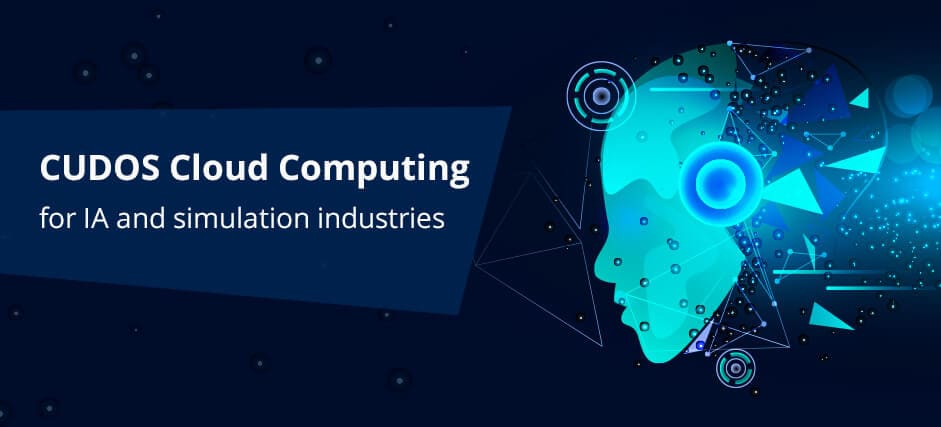CUDOS cloud computing presents us, great advantages for the development of an endless number of industries. In this article we will analyze two places, in which the approach from a distributed computing perspective is really interesting, such as artificial intelligence and the production of simulations for scientific and medical research, training in the aeronautical industry, among others.
The Advantages of Distributed Cloud Computing
Currently, technological advances are growing by leaps and bounds, that is why we can see how in recent years innovations in these places are having an ever greater evolution. If we look at history, we see how humanity in the last 50 years has made unprecedented advances that lead to a higher level of computing capacity, that has led to the construction of increasingly expensive and complex infrastructures.
Although cloud computing is not a noble concept, we see that in recent times it has had an exponential growth, which leads to greater hardware capacity to solve its architecture, that is why the solution that CUDOS provides in terms of Computing capacity distributed through underused devices, implies progress in the construction of a new infrastructure that can meet current requirements.
In this way, CUDOS provides the necessary platform so that industries can be developed that would otherwise be almost impossible due to the technical requirements that are needed today. Thanks to the capabilities of this blockchain, we can see a development in terms of graphic rendering, machine learning, as well as places related to simulators to carry out scientific or medical research, as well as flight simulations for pilot training, being possible to this type of computing capabilities.
Simulation industry
Simulators have been proposed by humanity for quite some time, and it is with them that situations that need to be studied can be represented in a virtual way without having to expose people to real risks. One place in which this industry stands out, is in that of training for aeronautical pilots, where through these representations, they can achieve training before taking a real command and thus avoid and reduce errors that lead to risks.
Thanks to the computational capacity of CUDOS, flight simulators can be endowed with unparalleled technical capabilities, managing to represent the training field in a more realistic way, both in terms of the visual section as well as in relation to the mathematical calculations necessary for analyze the parameters that are required. Otherwise, the costs and the physical capacity of the Hardware require a much higher performance, which is solved by the platform of this blockchain with benefits for all the intervening parties.
In terms of scientific and medical research, simulators are also necessary to be able to obtain a real field represented in virtuality. Let us take as an example in the scientific field, the analysis of certain hazardous materials or terrain, which are represented in a simulation, requiring that the parameters be adjusted almost to reality, and it is here where this development is benefited through the capacity of distributed computing, as well as in the medical development of new therapies or medicines, where a great computational capacity is required to be able to obtain significant advances with the least possible margin of error and in the greatest speed.
Machine learning developments
Artificial intelligence is being developed by leaps and bounds, thanks to recent technological innovations, developers in the field have been given the opportunity to obtain tools that allow rapid evolution in increasingly ambitious projects. The first developments in artificial intelligence were very archaic, limited to very basic tasks, but today, we see this technology immersed in our daily lives, from complex infrastructures to elements that are used on a daily basis such as internet search engines.
Artificial intelligence gave way to machine learning systems, which through neural networks are constantly learning how to improve their capabilities to provide more precise solutions. In order to obtain consistent results. These systems, in order to obtain consistent results, carry out multiple training tasks that require greater computing capacity day by day, and this is where CUDOS contributes its network to be able to distribute the requirements that are needed.
Machine learning systems evolve rapidly, and this has a mutual benefit for all of humanity, allowing everyday tasks to be performed more easily and precisely. We can observe how CUDOS’s contribution in the field of distributed cloud computing provides the necessary parameters for the development of a more inclusive collaborative ecosystem.
Conclusion
Thanks to the distributed computing in the cloud of CUDOS, the industries related to simulators and machine learning, obtain a benefit in terms of costs and technical capabilities without equal, and on the other hand, we all benefit from it in the use of services with greater quality and safety levels, issues that provide an inclusive ecosystem, opening paths to a more developed world.

